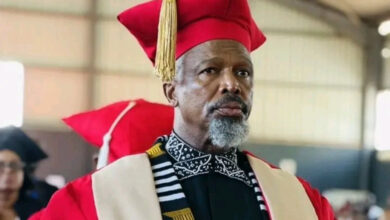Equal opportunities for the Youth of South Africa By Abram Molelemane

Equal opportunities for the Youth of South Africa – How much has changed since 1994?
As I write this, I’m having a drink with my colleague Nick Owsley, a graduate with an Honours Degree in Politics, Philosophy and Economics from the University of Cape Town. With Human Rights Day approaching I can’t help but think how fortunate our generation is. A mere 18 years ago, in South Africa it was regarded as breaking the law for a black person to have a drink with a white person in many watering holes – how far we have come since then.
Thankfully all that has changed, democracy has done away with the old and has breathed new beginnings. South Africans now have equal rights and equal opportunities.
As a young person, what excites me most about democracy is the fact that the opportunities for young people to craft better lifestyles for themselves are enormous. What’s even better is the fact that they are open to everyone, regardless of colour, creed or other qualifying factors. Everywhere you turn, new programmes and projects are being implemented to uplift young people.
Sadly, the truth is that many of our young people who need these opportunities the most often do not know of their existence.
Lazy or Misinformed?
I am of the belief that I am one of many youths that has been able to access a slice of the opportunities that came with the advent of democracy. Because of this I now find myself educated and employed. Sadly though, it’s a different case with many of my peers. I often find myself pondering about the challenges they face on daily basis, as young South Africans without jobs, skills or education.
In the past when I reflected on such matters, I invariably came to the conclusion that the reason behind their status quo is that many of them are simply just lazy or reluctant to look for opportunities or take on other alternatives. Or perhaps they are waiting for manna from heaven (government).
It was only after I went home for my university holidays that I changed my assumption. Upon my arrival I bumped into an old friend of mine I schooled with named Ali. Unlike me, Ali completed his matric with flying colours.
Although he did well in matric, I was rather shocked to learn that he was sitting at home, unable to continue with his studies due to financial instability. My knowledge of Ali’s financial challenges made me empathise with him initially, however my empathy was soon replaced by exasperation. Did Ali not know that there were a lot of programmes and bursaries available to help people like him? Surely he must have known about the National Student Financial Aid Scheme of South Africa (NSFAS) or about the Vodacom bursary scheme or the SACTWU bursary fund?
In truth, Ali was clueless that such programmes even exist. And he is not the only one. Studies show that 8 out of 10 young people in SA (especially in the rural areas) are unaware about the available opportunities and programmes provided by the government, corporates and other stakeholders to assist them where necessary.
Surely something must be going wrong, and it can’t just be ignorance. It’s more than that. Why is this vital information not filtering through to those who need it the most?
Information is key
An article by Wendy McMillan and Robert Barrie reveals that most students from rural areas have to rely on other students who experienced university to access information, including assistance in applying and registering. The data also showed that knowledge about university access is severely lacking in rural areas.
“I didn’t know about bursaries or something like that so that you can go to university,” explained one student when interviewed.
For someone who grew up in the underdeveloped province of Limpopo, I would agree that accessing information as well as a general lack of information is a major concern in rural areas. Not only is it difficult to access, sometimes it just never reaches the intended audience.
Lack of skills and resources
Information on how they can better their lives is crucial to the development of rural communities, but there are many barriers faced in terms of accessing this information. Some of these include access to internet, libraries, electricity, telecommunication, utilities, roads and transportation, low level of literacy, lack of proper information services, technical competencies and much more.
Although some communities in South Africa have these resources, poor infrastructure can hinder access to them for many. For instance, some people have to travel long distances to reach these services (i.e. libraries, clinics, internet café etc.).
Skills shortages also contribute to this dilemma. Although there are some communities with access to resources for information, this often does not resolve anything because they don’t have the skills to use those resources. Many people can’t operate the computer or make use of the internet, training is in short supply and thus these resources fail to serve the very communities they were supposed to be assisting. In addition, the skills that many who are fortunate enough to attend tertiary institutions are taught often do not meet the needs of the job market for which they are being prepared.
Where to from here?
Fortunately all is not doom and gloom, there is a way to improve information dissemination and make sure people (rural or otherwise) are aware of the opportunities available to them.
Firstly, libraries and information centres should develop their collections, facilities and services to meet the information needs of their patrons. To achieve this, the government and its organizations need to carefully and thoroughly understand information needs, ways people seek information, information services and information systems. Furthermore, it is important that the government understands the purpose for which information is required, the environment where the user operates, sources and channels preferred for acquiring information.
In a paper on rural development, Manir Abdullahi Kamba of Bayero University Kano in Nigeria says that it should be a priority to educate communities to know the importance of information that is relevant to their immediate activities. He adds that harnessing information resources for development can only be achieved when the community values information, such that they are ready to seek and use information in solving daily activities regardless of the distance, format or medium in which the information is available.
As for skills shortage, according to an article on skills.oecd, education and training systems need to intimately understand the demand for skills and the drivers of changes in skills demand. Furthermore, employers need to work with education and training systems to provide that information and design training that meets their practical needs.
I am excited about a new project from Fetola (www.fetola.co.za ) called GAP, the Graduate Asset Programme. GAP is aimed at growing the SME sector in South Africa. By helping place thousands of capable and willing unemployed graduates into internships, GAP will assist the host businesses to gain much-needed skills and the graduates to gain valuable experiential learning. In this way both parties benefit.
Programmes run through the NYDA (National Youth Development Agency) are also looking at ways to address critical skills shortages. One example is the Accelerated Artisans and Skills Training Programme. After going through an assessment, a young person can either undergo electrical, plumbing, boiler making, welding, bricklaying, carpentry, forklift, computer programming or air conditioning and refrigeration training. In addition, to increase the trainee’s chances of securing work opportunities, the programme also includes life skills and job preparedness training.
As we approach Human Rights Day, I firmly believe the youth of South Africa have enormous opportunities. It is a matter of implementing new strategies of sending out information and ensuring that it reaches its designation, ensuring that the information is well understood and not misinterpreted in any way. This also includes promoting and implementing active programs that can address skills shortages and actively provide training (on the job experience), particularly in areas and industries that lack capable human resources the most.




